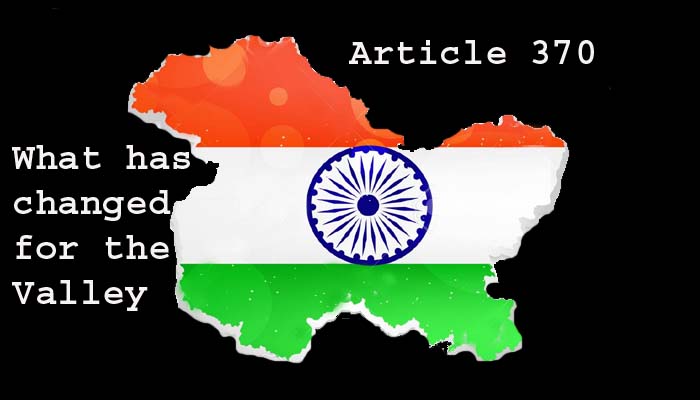TRENDING TAGS :
#Article370: What has changed for the Valley; Know in 10 points!
After seven long decades, BJP has finally succeeded to repeal the special status enjoyed by Jammu and Kashmir on August 05, by scrapping down the Article 370 and negating many exclusive rights reserved only for its residents by Indian constitution.
New Delhi: After seven long decades, BJP has finally succeeded to repeal the special status enjoyed by Jammu and Kashmir on August 05, by scrapping down the Article 370 and negating many exclusive rights reserved only for its residents by Indian constitution.
This abrogation has devoid state of many special rights enjoyed by its citizens for 72-long-years. Know what these rights were and how they are to bring changes in the Valley:
ALSO READ: Section 144: From its importance to violations, here is all you need to know
No duel Citizenship
Under Article 370, the residents of Jammu and Kashmir were enjoying dual citizenship i.e. they were not only enjoying exclusive rights given to them by Indian constitution being the residence of the state but were also Citizens of India. As per this article no one but the residence of the state were allowed to vote in the elections and form parties.
-If a woman marries a man in other Indian States, she loses her citizenship. Whereas if any woman marries a Pakistani, she will be entitled to have a citizenship of Jammu & Kashmir.
-The Article also gives Pakistan's citizens entitlement to Indian citizenship, if he marries a Kashmiri girl.
Now after the abrogation of Article 370 any citizen of India could cast vote in the state.
Central laws can directly apply
Most of the laws except defence, foreign affairs, finance and communication, passed by Indian Parliament need to be approved by the State Government before they are made applicable in the State.
No separate laws for J-K
The citizens of J&K were governed by State-specific laws which come under the Constitution of Jammu and Kashmir, instead of those for the rest of India. The Centre has no power to declare financial emergency under Article 360 but it can declare emergency in the state only in case of war or external aggression.
ALSO READ: Know what Article 35A, Article 370 is and what its removal means!
Indian citizens from other states can buy land and property
Earlier, buying land/immovable property by non-residents of Jammu and Kashmir were prohibited under this article. Now anyone can buy property there.
No two flags
The state will no longer have any separate flag. And from now onwards only Indian tricolor will be hoisted in the state.
Election every five years
Unlike other state legislative Assemblies, J&K legislature had a six-year term, whereas, after repealing of Article 370 elections in Jammu and Kashmir will also be conducted as in other parts of India.
Police will be managed by the centre
Till now the police was under the control of state government but from now on wards this power shifts in the hands of central government of India.
Laws including RTE, RTI will now be applicable
Majority of Indian laws including RTE, RTI and agencies like CBI, CAG were not applicable in J&K but after this article all such agencies and laws can noe operate in the state.
Jobs for all in J-K
Previously, jobs were only secured for residents of the Jammu and Kashmir but now any Indian citizen can get the job in the valley.
ALSO READ: #KashmirParFinalFight LIVE: Article 370 revoked; Modi to address nation



